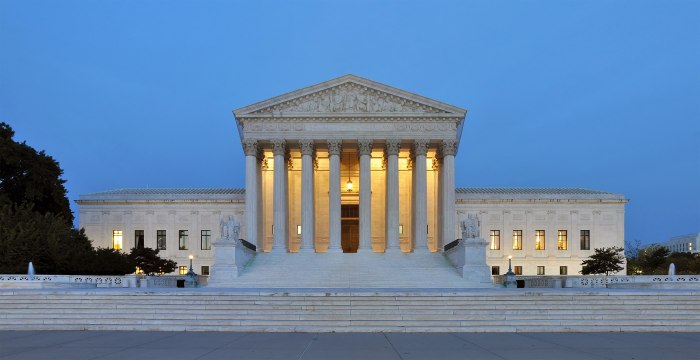BY DUNCAN OSBORNE | Gay porn producers have increasingly turned to the federal courts to protect their revenue base, filing copyright infringement lawsuits against those who illegally download their videos on the web –– but recent court rulings may place nearly insurmountable obstacles to their continued reliance on such litigation.
“I think there definitely will be an explosion in what we refer to as end-user litigation,” said D. Gill Sperlein, an attorney in private practice who represents gay and straight porn producers in copyright lawsuits. “I think in two to six months down the road, we will be better able to detect the trend… The courts have put up some roadblocks, and how the attorneys handling the cases deal with that will determine” how producers defend their copyrights in the future.
From 2002 to early 2010, Sperlein was in-house counsel at IO Group, the studio that owns Titan Media, a gay porn brand. That company has brought dozens of copyright infringement lawsuits against downloaders and others since 2001.
More recently, Lucas Entertainment, the studio owned by performer Michael Lucas, and Liberty Media Holdings, which owns the Corbin Fisher brand, have joined the legal fray. Lucas has filed eight suits since 2007, and Liberty has filed 16 since mid-2009.
In an indication of how seriously gay and straight porn producers are taking copyright infringement, Sperlein said he has been hired by 35 producers over the past year.
The companies have sued websites where their films are housed and individuals who have downloaded their films, but a current legal strategy is to identify the Internet protocol, or IP, addresses of downloaders and sue a group of them as John Does in one lawsuit.
In various lawsuits, the gay porn producers have sued anywhere from a few John Does to several hundred to 1,000 in a single case filed in one jurisdiction. Some straight porn producers have sued several thousand in a single case.
The legal theory behind such suits is that the John Does are acting in concert by using a peer-to-peer network or BitTorrent software that distributes the processing of large files, such as movies, among multiple users or servers –– much the way Napster, in its first incarnation, employed file sharing of music.
Having sued the John Does, the producers then subpoena the names, addresses, and other personal information associated with the IP addresses from their Internet service providers. The producers write to the Joe Does identified in this way and seek compensation, which is typically a small amount.
“The amounts we collect do not offset the cost of investigation, litigation, and loss,” Marc J. Randazza, Liberty’s general counsel, wrote in an email. “These cases are not profitable… We knew that going into it. The point is an overall full court press to make sure that we hit the thieves on all fronts.”
Lucas told Gay City News, “I am making money by suing them,” and put the typical settlement amount at $1,500. He performs in the films his company produces, and learned of the illegal downloads when he was traveling and found he had fans in countries where his videos were not sold.
Sperlein said, “When I was in-house, I would say that the cost of bringing the litigation and keeping it in-house… was essentially break-even.”
In friend of the court briefs, the San Francisco-based Electronic Frontier Foundation (EFF), an online rights group that objects to such lawsuits, has argued the suits are intended to force defendants to settle quickly to avoid the embarrassment of being exposed as a porn user.
Two web sites — queerty.com and unicornbooty.com — have asserted that these suits risk exposing gay teens to parents who may be hostile to homosexuality.
The producers counter that copyright infringement is threatening the economic viability of their businesses.
“The number of copies of our videos that are viewed illegally is a multiple of those we sell,” Sperlein said, adding that IO Group once estimated that ten Titan videos were illegally downloaded for every one that was sold.
Lucas put the number of yearly pirated copies of his videos at “thousands,” and “tens of thousands if you take the world.”
In recent decisions in 36 separate cases, however, courts in five jurisdictions have decided that the acting in concert theory is not supported by the facts and have severed the defendants originally grouped in a single suit, according to a list of those cases on the EFF website. More than 41,000 John Does who downloaded gay or straight porn were sued in those 36 cases. Two of those 36 were Lucas Entertainment lawsuits, and three were brought by IO Group.
Severing the defendants requires the producers to sue each defendant individually –– and they may have to sue each defendant in the jurisdiction where the porn was downloaded, though Gay City News could not find any court that has ruled on the jurisdiction issue. Given how little the producers recover, the cost of filing that many suits is prohibitive.
It may be that some producers are already becoming more selective.
“Our cases are much more focused,” Sperlein said. “We no longer have the luxury of bringing a case that is not likely to result in some sort of award, a collectible award.”


































